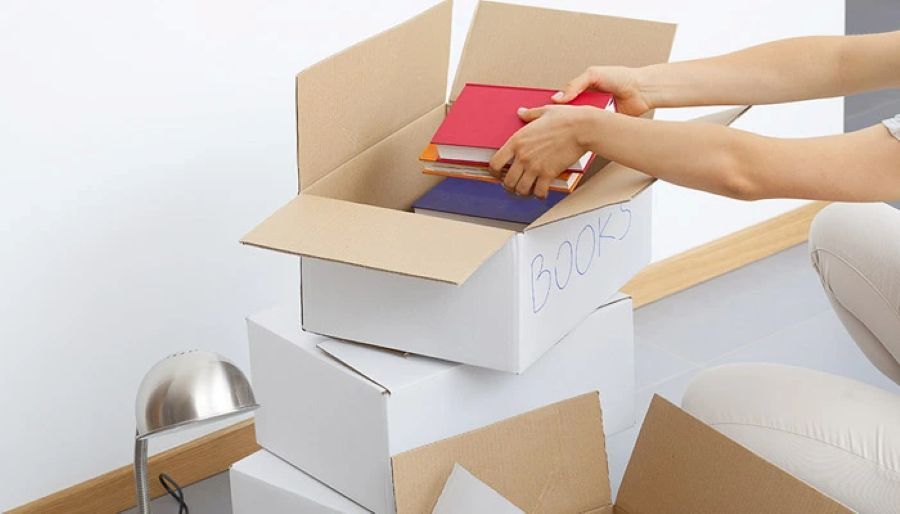What Is the Best Way to Get Rid of Unwanted Furniture?
The best way to get rid of unwanted furniture depends on your needs, budget, and timeline. You can donate it to charity, sell it online, hire a junk removal service, rent a dumpster, take it to a landfill, or leave it for curbside pickup. This guide will help you pick the right method for your situation.
Getting rid of old furniture can feel overwhelming. Maybe you're moving to a new home, downsizing, or just ready for a fresh look. Whatever your reason, you have several smart options that work better than just throwing it away. We'll walk you through each method so you can make the best choice for your furniture and your wallet.
Why Getting Rid of Furniture the Right Way Matters
Before we dive into your options, let's talk about why this matters. Americans throw away over 12 million tons of furniture each year, and 80% of it ends up in landfills. That's a huge waste problem that we can all help fix by making smarter choices.
When you pick the right disposal method, you can:
- Help families in need get affordable furniture
- Keep toxic materials out of landfills
- Make some money back on quality pieces
- Save time and stress during your move or cleanup
Top 7 Ways to Get Rid of Unwanted Furniture
1. Donate Your Furniture to Charity
Donating is often the best choice if your furniture is still in good shape. Many charities will even pick it up for free, making this option super convenient.
Best Charity Pickup Services
Goodwill operates in most areas and offers free pickup for large items. About 81% of Americans live within 10 miles of a Goodwill store. They sell donated items in their stores and use the money to provide job training programs.
The Salvation Army picks up furniture donations in many areas. You can schedule online or call 1-800-SA-TRUCK. They use the money from sales to fund homeless shelters, food programs, and disaster relief.
Habitat for Humanity ReStore accepts furniture, appliances, and building materials. Most locations offer free pickup, and they use the proceeds to build affordable housing for families in need.
Local Options include churches, schools, community centers, and animal shelters. Many of these smaller organizations need furniture for their programs and are happy to pick up donations.
What You Can and Can't Donate
Most charities accept:
- Clean furniture without stains or tears
- Tables, chairs, and dressers in good condition
- Sofas and recliners that smell fresh
- Working lamps and home decor
They typically won't take:
- Mattresses (health regulations)
- Broken or heavily damaged pieces
- Furniture with pet odors or stains
- Items that need major repairs
How to Schedule Pickup
Call ahead or use online scheduling tools to set up pickup. Most charities need 2-4 weeks notice, especially during busy seasons. Take photos of your items and be honest about any damage when you call.
2. Hire a Junk Removal Service
If you need fast, hassle-free removal and don't mind paying for convenience, a junk removal service is your best bet.
How Much Junk Removal Costs
Professional junk removal typically costs between $133-$372, with an average price of $242. Here's what you can expect:
- Single item removal: $60-$150
- Half truck load: $200-$400
- Full truck load: $600-$800
The price depends on how much space your furniture takes up in their truck, plus local disposal fees.
Benefits of Professional Services
- They do all the heavy lifting
- Same-day or next-day service available
- Proper disposal and recycling
- Licensed and insured workers
- No need for you to have a truck
What to Expect
Most companies give you a price quote when they arrive. If you agree, they'll load everything and clean up the area. The whole process usually takes 30-60 minutes.
3. Sell Your Furniture Online
If your furniture is in great condition, selling it can put money back in your pocket.
Best Places to Sell
Facebook Marketplace reaches lots of local buyers and is easy to use. Post good photos and detailed descriptions for best results.
Craigslist has been around forever and still works well for furniture sales. Be prepared to negotiate on price.
OfferUp and Mercari are mobile-friendly apps that make selling simple.
Garage Sales work great if you have multiple items to sell at once.
Tips for Quick Sales
- Take photos in good lighting from multiple angles
- Be honest about any scratches or wear
- Include exact measurements in your listing
- Price items to move - don't expect retail prices
- Offer to help load furniture for buyers
4. Use Curbside Bulk Pickup
Many cities offer bulk pickup services as part of regular trash collection.
How Curbside Pickup Works
Check with your local waste management company about bulk item collection. Some cities include this service for free, while others charge $25-50 per item.
You'll typically need to:
- Schedule pickup in advance
- Put items out on your designated day
- Follow size and weight limits
- Avoid putting out hazardous materials
Pros and Cons
Good: Usually free or cheap, no need to transport items yourself
Not so good: You have to wait for scheduled pickup days, items sit outside until collection, not available in all areas
5. Take Furniture to a Landfill or Transfer Station
If you have a truck and don't mind doing the work yourself, taking furniture directly to the dump can be cost-effective.
Landfill Costs and Rules
Most landfills charge $10-50 per ton or have flat fees for furniture disposal. Call ahead to check:
- Operating hours and days
- What types of furniture they accept
- Payment methods they take
- Size restrictions for your vehicle
Some facilities offer free disposal days for residents, which can save you money if you can wait.
6. Rent a Dumpster
For large cleanouts or multiple pieces of furniture, renting a dumpster might make sense.
Dumpster Rental Costs
A 20-yard dumpster (the most popular size) costs about $520 on average for a week. Smaller sizes start around $295, while larger ones can cost up to $780.
This option works best when you're cleaning out an entire house or doing a major renovation project.
Dumpster Benefits
- Work at your own pace
- One price covers everything
- Good for mixed debris and furniture
- Convenient placement at your location
7. Recycle Metal Furniture
If you have metal furniture like bed frames, chairs, or tables, scrap metal recycling is an option.
What Metal Recyclers Take
- Steel bed frames and table bases
- Aluminum chairs and furniture frames
- Iron decorative pieces
- Couch springs (if you remove the fabric first)
You'll need to separate metal from other materials, which takes time but can earn you some money based on current scrap metal prices.
How to Choose the Best Method for Your Situation
When You Have Quality Furniture in Good Shape
Best choice: Donate to charity or sell online
If your furniture could still be useful to someone else, donating or selling makes the most sense. You'll help others while keeping good items out of landfills.
When You Need Fast Removal
Best choice: Hire a junk removal service
Professional services can usually pick up your furniture within 1-2 days. This works great when you're moving on a tight timeline.
When You're on a Tight Budget
Best choice: Curbside pickup or landfill drop-off
These options cost the least but require more planning and physical work on your part.
When You Have Lots of Furniture
Best choice: Rent a dumpster or hire junk removal
For whole-house cleanouts, these methods handle large volumes efficiently.
Special Considerations for Different Furniture Types
Mattresses and Box Springs
Mattresses need special handling due to health regulations. Many charities won't take them, and some areas ban them from landfills. Look for mattress recycling programs in your area, or use a junk removal service that handles them properly.
Upholstered Furniture
Sofas and chairs with fabric or leather need to be clean and odor-free for donation. If they're stained or smelly, junk removal or landfill disposal might be your only options.
Heavy Items Like Pianos
Super heavy pieces often require professional moving services or specialized junk removal. Don't try to move these yourself - you could get hurt or damage your home.
Environmental Impact of Furniture Disposal
Every year, furniture waste creates serious environmental problems. Here's what happens when furniture goes to landfills:
- Takes up massive amounts of space
- Releases toxic chemicals into soil and water
- Creates methane gas as it decomposes
- Wastes valuable materials that could be reused
By choosing donation, selling, or proper recycling, you help reduce these problems and support a circular economy where materials get reused instead of wasted.
Money-Saving Tips for Furniture Disposal
For Donation Pickup
- Group multiple items together for one pickup
- Choose charities that don't charge pickup fees
- Get tax deduction receipts for your donations
For Junk Removal Services
- Compare quotes from 3-4 companies
- Place items outside if possible for lower rates
- Book during off-peak times for better prices
- Bundle multiple services for volume discounts
For DIY Options
- Share dumpster costs with neighbors
- Use your own vehicle to save transport fees
- Check for free community disposal days
- Join local Buy Nothing groups for free item exchanges
What Not to Do When Disposing of Furniture
Never dump furniture illegally. This harms the environment and can result in hefty fines - sometimes thousands of dollars.
Don't leave furniture at donation centers without permission. This creates problems for the charity and might be considered illegal dumping.
Avoid putting furniture with hazardous materials in regular trash. Items with lead paint, asbestos, or other dangerous substances need special handling.
Questions to Ask Before Choosing a Disposal Method
- How quickly do I need this gone? Rush jobs often cost more but give you faster results.
- What condition is my furniture in? This determines whether donation or selling makes sense.
- Do I have help moving heavy items? Some methods require lifting and loading furniture yourself.
- What's my budget? Free options take more time and effort, while paid services offer convenience.
- How much furniture am I getting rid of? Large amounts might need different solutions than single pieces.
Making Your Decision Easier
Start by honestly evaluating your furniture's condition. If it's something you'd be comfortable giving to a friend, donation or selling are great choices. If it's damaged or worn out, focus on disposal methods that handle lower-quality items.
Consider your timeline too. Moving next week? A junk removal service might be worth the cost. Have a month to plan? You can explore free options that take more time to arrange.
Think about your physical capabilities as well. Can you lift and load furniture safely? Do you have access to a truck? Your answers will help narrow down the best methods for your situation.
Final Thoughts
Getting rid of unwanted furniture doesn't have to be stressful or wasteful. The best approach combines what works for your timeline, budget, and the condition of your items.
For quality pieces, start with donation or selling options - you'll help others while potentially earning money or tax deductions. When you need fast removal or are dealing with damaged furniture, professional services offer convenience and peace of mind.
Whatever method you choose, avoid illegal dumping and try to keep usable items out of landfills. Your choices make a real difference for families in need and for our environment.
Ready to get started? If you're planning a move and need help with furniture and other items, contact Last Stop Moving for professional assistance with your relocation needs in Edmonton and surrounding areas. We understand that moving involves tough decisions about what to keep, donate, or leave behind - and we're here to make the process as smooth as possible.



